UNITED NATIONS: In a clear message to Kabul’s de facto rulers, a UN delegation has warned that isolating women will also isolate Afghanistan and as the country faces a terrible humanitarian crisis, it cannot afford to do so.
The high-level UN delegation that visited Afghanistan this week, also urged the international community to support Afghan women.
UN legal experts, in another statement, described the “collapse of the rule of law and judicial independence” in Afghanistan as “a human rights catastrophe”. “We are gravely concerned by the extreme exclusion of women from the legal system,” said the UN experts, while calling for “urgent support” to the people of Afghanistan.
The delegation that visited Kabul included Deputy Secretary-General Amina Mohammed, the Executive Director of UN Women Sima Bahous, and the Assistant Secretary-General for UN political, peace building and peace operations Khaled Khiari.
Observers say findings of all-Muslim UN delegation may influence global policies towards Afghanistan
The delegation’s composition was also intended to convey a message to Afghanistan’s Taliban rulers as it included two of the senior most Muslim women in the UN system. One of them, Amina Mohammed, is also the senior most UN official after the secretary general. The third member, Mr Khiari, is also a Muslim.
The Taliban may find it difficult to portray the recommendations of an all-Muslim delegation, headed by a hijab-wearing UN official, as anti-Muslim propaganda, as they often do.
UN observers say the United Nations will share their recommendations with all member states, and thus the findings of the delegation may also influence global policies towards Afghanistan.
In a statement issued in New York on Friday afternoon, the delegation said the aim of this four-day visit to Afghanistan was to “appraise the situation, engage de facto authorities and underscore UN solidarity with the Afghan people”.
In meetings with the Taliban authorities in both Kabul and Kandahar, the delegation “directly conveyed (its) alarm” over some of the recent decrees, banning women from educational institutions and workplaces.
“My message was very clear … these restrictions present Afghan women and girls with a future that confines them in their own homes, violating their rights and depriving the communities of their services,” Ms Amina said. “Afghanistan is isolating itself, in the midst of a terrible humanitarian crisis … and we must do everything” to stop this.
During the visit, the delegation met affected communities, humanitarian workers, civil society, and other key actors, in Kabul, Kandahar and Herat. “We have witnessed extraordinary resilience. Afghan women left us no doubt of their courage and refusal to be erased from public life,” Ms Bahous said. “We are duty bound to support them in doing so.”
Ms Bahous, a Jordanian diplomat and the third executive director of UN Women, said, “what’s happening in Afghanistan is a grave women’s rights crisis and a wakeup call” for the international community. “UN Women stands with all Afghan women and girls and will continue to amplify their voices to regain all their rights.”
The delegation’s visit to Afghanistan followed a series of high-level consultations on Afghanistan across the Gulf and Asia. The delegation also met the leadership of the Organisation of Islamic Cooperation (OIC), the Islamic Development Bank, groups of Afghan women in Ankara and Islamabad and a group of Ambassadors and Special Envoys to Afghanistan based in Doha.
The delegation convened with government leaders from the region and religious leaders to advocate for the crucial role and full participation of women and rally support for the Afghan people.
UN-appointed independent human rights experts, who met in Geneva, pointed out that in “an act of brazen discrimination”, the Taliban have attempted to effectively ban all women from participating in the legal system. The statement noted that over 250 women judges, and hundreds of female lawyers and prosecutors, have already been removed. Many women judges have fled the country or gone into hiding.
Published in Dawn, January 22nd, 2023

















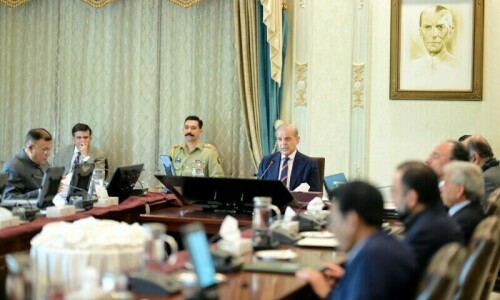


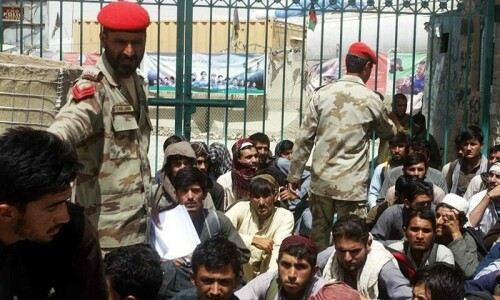

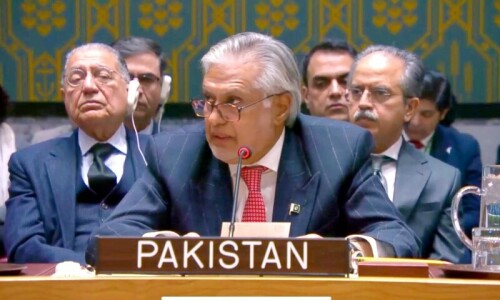

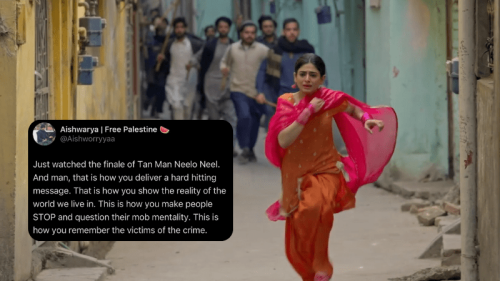

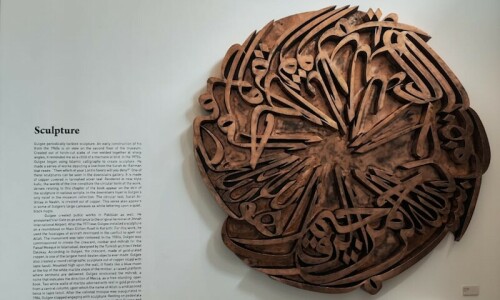









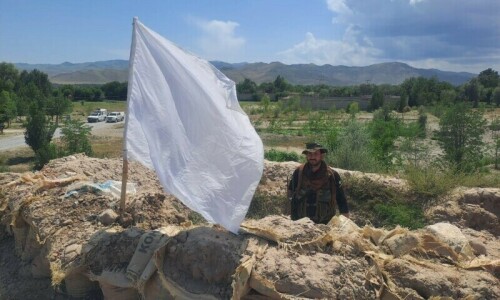

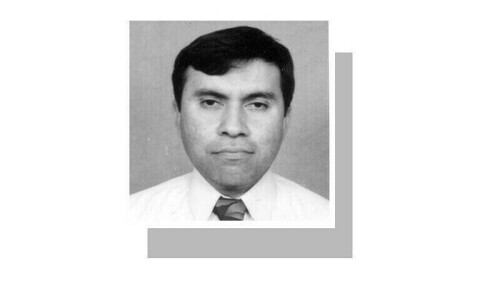










Dear visitor, the comments section is undergoing an overhaul and will return soon.